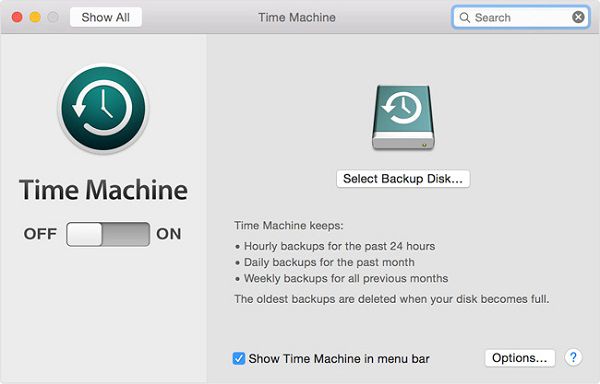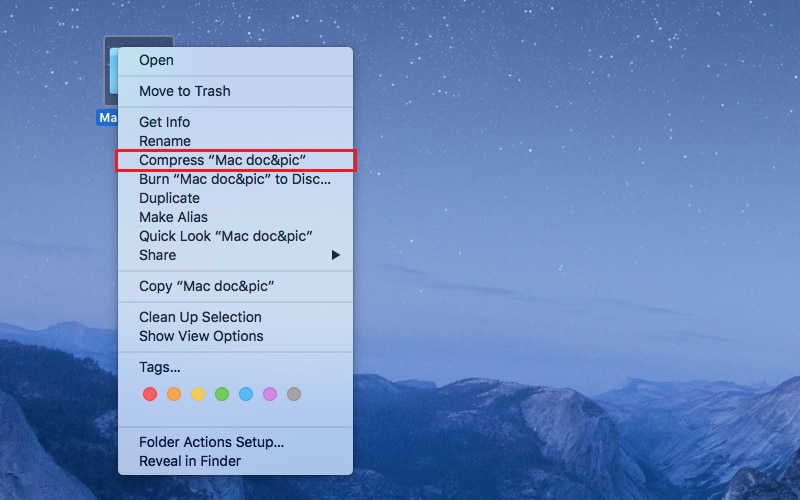 Home > macOS Tips and Tricks > Apps won't Work in macOS 10.14 Mojave
Home > macOS Tips and Tricks > Apps won't Work in macOS 10.14 MojaveThere is a common issue that several apps won't work with Mac 10.13 once update to High Sierra. If you are using older programs, this will be even more common. If you find your app won't work in macOS High Sierra. Firstly, make sure the latest version of the application has been downloaded and installed. Secondly, you should go to the official website of the application to check whether it supports macOS 10.13 High Sierra or not, if it is not compatible with the latest system, you should find an alternative.
Solutions to Apps won't Work with High Sierra
While many Apple fans turned their heads to the announcement of the iPhone 8 and iPhone X at the September 12 event, some users wanted to see more of the High Sierra operating system announced on September 25.
As you might have guessed from the subtle name, the difference is similar in magnitude when Apple went from OS X Leopard, to macOS Snow Leopard in 2009. Whether you have installed Mojave or not, there are some things you need to know before you start using the newer operation system.
For starters, some applications might not work in macOS High Sierra. The reason for that is Apple slowly shifting from 32bit apps to 64bit apps. Apple and Mojave will still support 32bti apps, but from January 2018, all apps sold in the Mac App Store should be 64bit apps.
If you are a heavy Adobe user, that spells bad news for you. Adobe announced that users of InDesign and Illustrator will find troubles in macOS High Sierra. There is no word of Adobe Acrobat and DC Cloud, but we can assume they will face the same challenges as with Illustrator.
That leaves you searching for another PDF solution that will work seamlessly in macOS Mojave. Luckily for you, Wondershare PDFelement - PDF Editor Wondershare PDFelement Wondershare PDFelement is one of those software programs that has adjusted to the evolution of the macOS perfectly.
PDFelement works great in Sierra, High Sierra, and will face no challenges in Mojave. The reason is simple, the software is well prepared. And you will find out that it has even more features than its Adobe competitors. Here is a quick overview of its features:
- You can use wide palette of features to edit text and images. In terms of text, you can change the size, style, and font of the text. As for pictures, crop, resize, rotate, extract, cut, and many other commands are available
- It comes with a lot of annotation tools as well. In addition to the standard highlight text, sticky notes, comments, and etc, you can also add visual annotation tools like arrows, lines rectangles, and other shapes. The personal drawing tools will make your PDF look that much more professional
Tips for Upgrading to macOS 10.14 Mojave
If an app doesn't work in the macOS 10.14 Mojave, you need to check whether the app is up to date. Check for the updated version of the application, one that is compatible with the latest operating system by Apple. Look in the Mac App Store to see the list of apps that are compatible, as they will show compatibility and system requirements.
To install the Mac OS 10.14 Mojave, you need to follow this step by step guide:
Step 1. Backup Mac
Before starting the update to the newer version, make a backup. You can make a backup in three different ways, with storing content in iCloud being the simplest one. You can store all of the data in iCloud. You get 5GB of free storage, but you can upgrade. The other two options is to burn CDs and DVDs or Copy files to another storage device.

Step 2. Is your device compatible?
You need to check whether your device is compatible for installing the new operating system. The updated version of macOS works on:
- iMac models from 2009
- MacBook models from 2009
- MacBook Pro models from 2010
- MacBook Air models from 2010
- Mac mini modes from 2010
- Mac Pro models from 2010
Step 3. Free up space
The last step before downloading and installing the new version is to check whether you have enough storage space. For info, High Sierra requires 2GB of memory and 14.3GB of storage space to perform the update. If you are low on storage space, you can move content, delete files, or optimize storage using macOS features.
Upon completion of the upgrade, the macOS Mojave requires 1.5GB of storage space more than its predecessor, the 10.12.6 Sierra.

Step 4. Download macOS Mojave
Last, go to the Mac App Store, find the macOS Mojave icon, and click on Download. The download wizard will guide you through the process and steps.
Free Download or Buy PDFelement right now!
Free Download or Buy PDFelement right now!
Buy PDFelement right now!
Buy PDFelement right now!
 100% Secure |
100% Secure |

Audrey Goodwin
chief Editor
Comment(s)